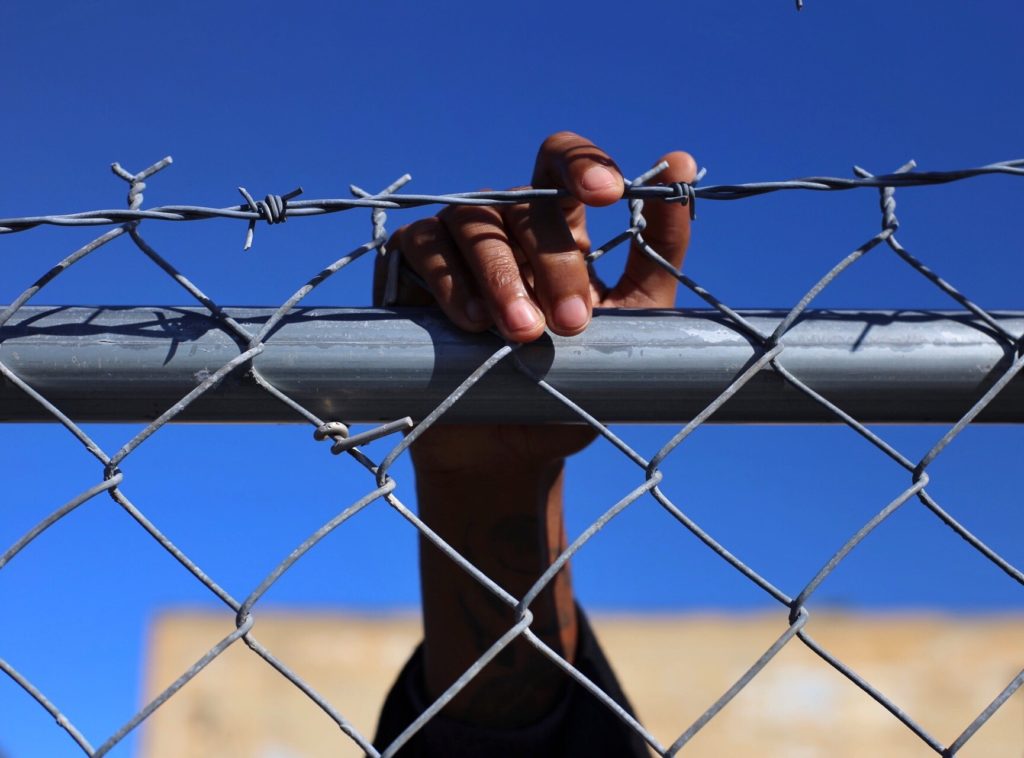
In a rare show of bipartisanship, Tennessee’s statehouse and Nashville’s city hall are pushing for a change to state law that would make it easier to detain people who are deemed a threat to themselves or others. But experts say that could leave the criminal justice system’s most vulnerable at greater risk.
Deborah Woodard has seen firsthand what her son, Justin, goes through when he’s been detained. Justin has autism and schizophrenia. Police officers and jail staff often don’t know that when booking him.
“He shut down and wouldn’t communicate with them,” she says. “They tased him, and the police officer charged at him. I saw it all on the tape. I said, ‘I don’t believe this.’”
Woodard says her son spent 11 months at a Clarksville facility before he was released. Next time, he could be detained for longer under a proposal receiving new support.
How we got here
Since the shooting death of Belmont University student Jillian Ludwig in November, the state’s rules around involuntary commitment have come under scrutiny. Investigators found that Shaquille Taylor — the man accused of killing the 18-year-old freshman with a stray bullet — avoided being involuntarily committed a few months before the shooting.
Nashville’s District Attorney Glenn Funk says a change in the law will help “balance individual needs with public safety.” During both of this year’s legislative sessions, House Speaker Cameron Sexton worked with Funk on a bill expanding involuntary commitment. It didn’t pass. But if it had, he says, Ludwig’s death could’ve been prevented. The bill would have changed the legal requirement for involuntary commitment from an individual who poses an “immediate” threat to an “imminent” threat.
Nashville Mayor Freddie O’Connell tells WPLN News that he’s “definitely interested” in a change to the current rules.
“The inconsistency where you can simultaneously be not fit to stand trial based on competence and yet not qualify for involuntary commitment, meaning that in that space you could still have access to firearms, that has sadly resulted in multiple fatalities as a result of gun violence,” O’Connell says.
Experts say lawmakers should use caution when considering an expansion to the law.
“I think any time we’re talking about the mass institutionalization of a certain population of people, we should tread very lightly,” says Zoe Jamail of Disability Rights Tennessee. “We don’t believe that someone, just based on a disability, should be institutionalized. That’s how we used to treat people with disabilities, and we’ve come a really long way moving away from that.”
Where can they go?
Months before Ludwig’s death, a judge found that Taylor was incompetent to stand trial for a separate, gun-related charge. He was released after he failed to meet the state’s bar for involuntary commitment. Doctors determined that he was operating at a kindergartner’s level, but that he wasn’t an immediate threat to himself or the community, according to court documents.
“If he had been in the community under the type of supervision that he required, then he probably would not have had access to a firearm,” Jamail says. “Why was there that access? Why wasn’t he being supported in the community? … To not have a placement for him is part of the problem.”
Even if Taylor had been involuntarily committed, there wouldn’t have been many places for him to go. While there are several facilities for those with mental health conditions, there’s only one for individuals with intellectual disabilities: The Harold Jordan Center in Nashville.
“This is a facility that in the past, I believe, had up to 80 beds. It now has four, and there are only three people being served in the Harold Jordan Center currently,” Jamail says.
The revolving door
Officials say that if the law changes, it would come with the promise of added support and bed space for jails and prisons that could see a rising population.
Deputy Chief Kevin Henderson says the jail he oversees in Rutherford County could use the funding; more than half of the people in his custody have been diagnosed with some sort of mental health condition, and his staff isn’t equipped to handle their needs.
“I would hope to have a clinician, a psychologist … I would want to have a mental health unit if we’re going to continue to receive the type of inmates that require mental health observation,” he says. “But the issue is, once they are released, we have nobody to hand them out to, and they go right back out into the same environment that brought them here in the first place. So, it’s just a revolving door. Once they leave here, the treatment stops.”
Henderson says the jail’s medical department stabilizes inmates and prescribes them medication, but it isn’t a long-term solution.
What’s next
Woodard agrees; her son has gone back and forth between the jail and the hospital since he aged out of a group home for teenagers.
“They just think, ‘Oh, you’re just crazy,’ and that’s it,” Woodard says. “You know, they don’t understand the different levels of the mental illness. And you need support. People need support. They need people to lean on and talk about their problems.”
Justin’s dual diagnosis of schizophrenia and autism makes it harder for him to get support for either condition. That’s because there are two different tracks within the criminal justice system — one for those with mental health conditions and another for those with intellectual disabilities.
“He’s at the state hospital now, but they’re only keeping him for forensic testing, and then they want to ship him out somewhere,” Woodard says. “I’m fearful. Where is he going to go next?”
Woodard will just have to wait and see what the courts decide — and what the legislature does.

